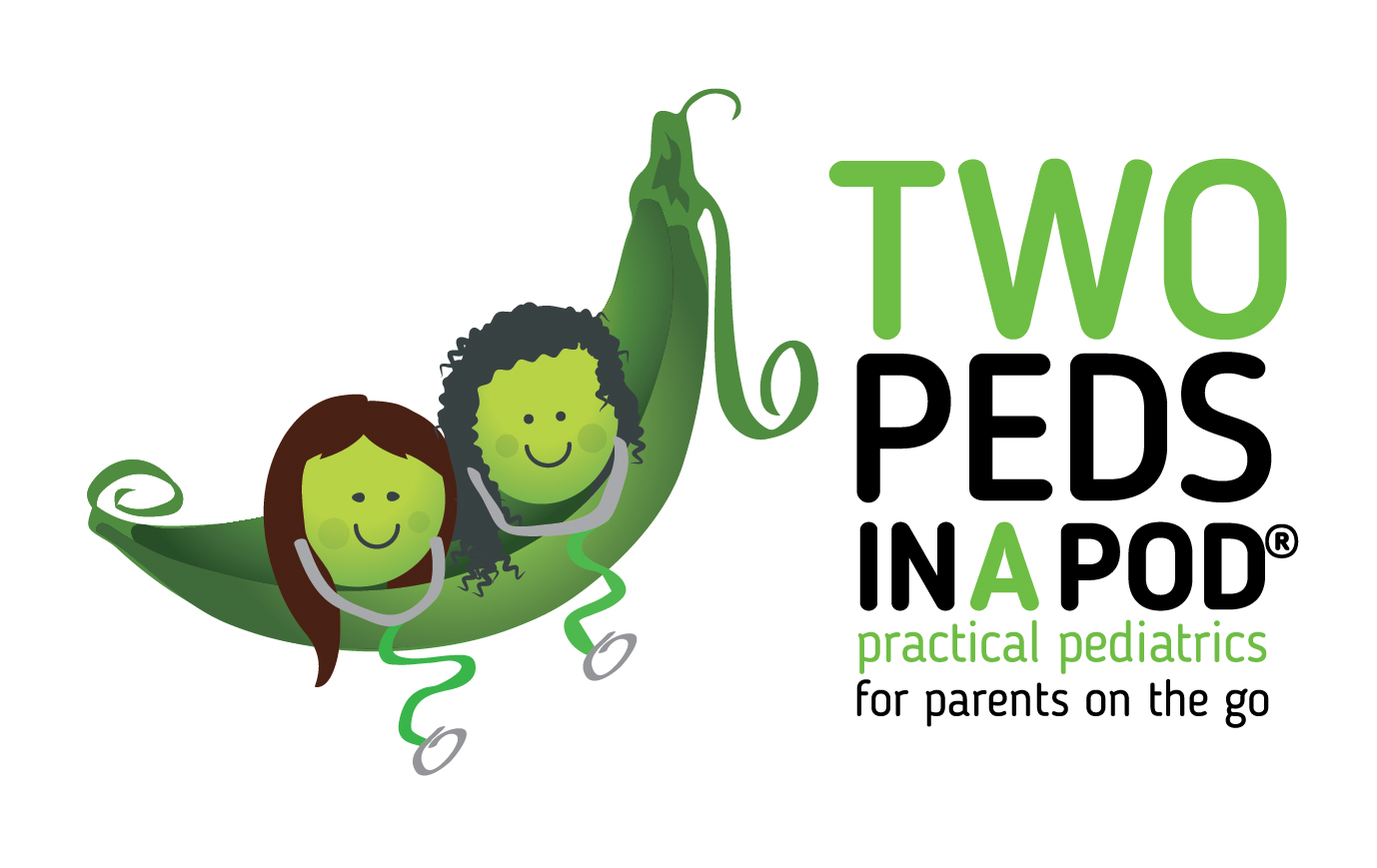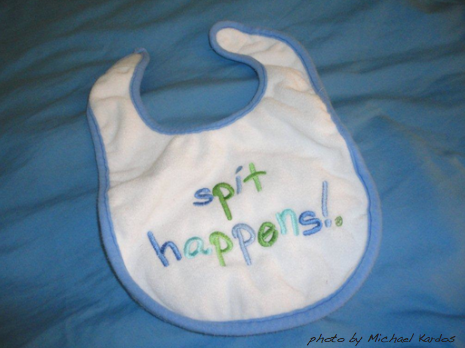In our office, two-month-old Max smiles ear to ear, naked except for a diaper and a bib. His worried mom asks me about the large amounts of spit up Max spews forth daily. “He spits up after every feeding. It seems like everything he eats just comes back up. It even comes out of his nose!” she says. Max gained the expected amount of weight, an average of one ounce per day, since his one-month check-up. He breastfeeds well and accepts an occasional bottle from his dad. Even after spitting up and drenching everything around him, he remains comfortable and cheerful. He is well hydrated, urinates often, and poops normally.
In short, Max is a “happy spitter” Other than creating piles of laundry, he acts like any healthy baby.
All babies cry. All babies pee and poop. All babies sleep (at times). AND: all babies spit up. The muscle in the lower esophagus that keeps our food and drink down in our stomachs and prevents it from sloshing upwards, called the “lower esophageal sphincter,” is loose in all babies. The muscle naturally tightens up and becomes more effective over the first year of life, which is why younger babies tend to spit up more than older babies.
Max has GER (gastroesophageal reflux) , Chloe has GER/ colic and Mona has GERD (gastroesophageal reflux disease). Max and Chloe have physiologic, or normal, reflux. Mona has reflux that interferes with her mood, her feedings, and her growth.
GER, GERD and colic (excessive crying in an otherwise healthy baby) improve by three to four months of age. If your baby cries often (enough to make you cry as well) then you should see your baby’s pediatrician to help determine the cause. It helps, before your visit, to think about when the crying occurs (with feedings? At certain times of the day?), what soothes the crying (feeding? walking/rocking?) and other symptoms that accompany the crying such as spitting up, fever, or coughing. Keeping a three day diary for trends can help pinpoint a diagnosis. We worry a lot when the babies are not “spitting up” but are actually “vomiting.” Spit blobs onto the ground. Vomit shoots to the ground. Vomit which is yellow, is accompanied by a hard stomach, is painful, is forceful (think Exorcist), or enough to cause dehydration, all may be signs of blockage in the belly such as pyloric stenosis or vovulus. Seek medical attention immediately.
The treatment for Max, the happy spitter with GER? Lots of bibs for baby and extra shirts for his parents.
Treatment for Chloe, the crier? Patience and tincture of time. You can’t spoil a young baby, so hold, rock and sway with her to keep her calm. Enlist a baby sitter or grandparents to help.
The treatment for Mona, the baby with GERD? Small, frequent feedings to prevent overload of her stomach, adding cereal any bottle feeds to help thicken the milk and weigh down the liquid, thus preventing some of the spit up (ask your doctor if this is appropriate for your baby), and holding her upright after feeds for 15-20 minutes. Physicians no longer advocate inclining the crib. To prevent Sudden Infant death Syndrome, she should still be placed on her back to sleep on a flat, firm surface. Sometimes, pediatricians prescribe medication that decreases the acid content of the stomach to help relieve the pain of stomach contents refluxing into the esophagus.
Treatment for parents? Knowing that someday your baby will grow up, no longer need a bib, and probably have a baby who spits up too.
Julie Kardos, MD with Naline Lai, MD
©2015, 2012 Two Peds in a Pod® updated 2019




